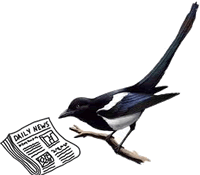
An email arrived today from Phil S, who has been wondering about the quirkiness of the phrase “to dial a telephone”, which is ubiquitous and exclusive in its meaning and yet has, of course, become totally divorced from the original physicality of the phrase. He would like to know:
– What idioms do other languages use, and what’s their literal meaning? Do they similarly refer to rotary telephones even though those are no longer in use? French and Italian use words with the root meaning of “compose”, whereas the German word, anwählen, seems like a form of “to choose”.
– In cultures where widespread adoption of the telephone has happened only recently (if at all), and mobile phones are the norm, I’d imagine that some local languages reflect that, i.e. their telephone-related words have no trace of a relationship to rotary dials, land lines, etc.
– Also, per the OED the verb “dial” apparently dates to 1921 in its phone-related usage, but is much older when used as a word for “to survey with the aid of a dial” (1653) or “to measure as with a dial” (1821). Unfortunately the OED doesn’t discuss the expression “dial in” or “dialed in”, which is sometimes used in sports among other places.
————————–
I’d be interested to know how many of you have used a rotary dial phone, and do you remember when you last used one?
I remember using such phones in Taiwan in the early 90s, and I think we were still using them in the UK at that time.

